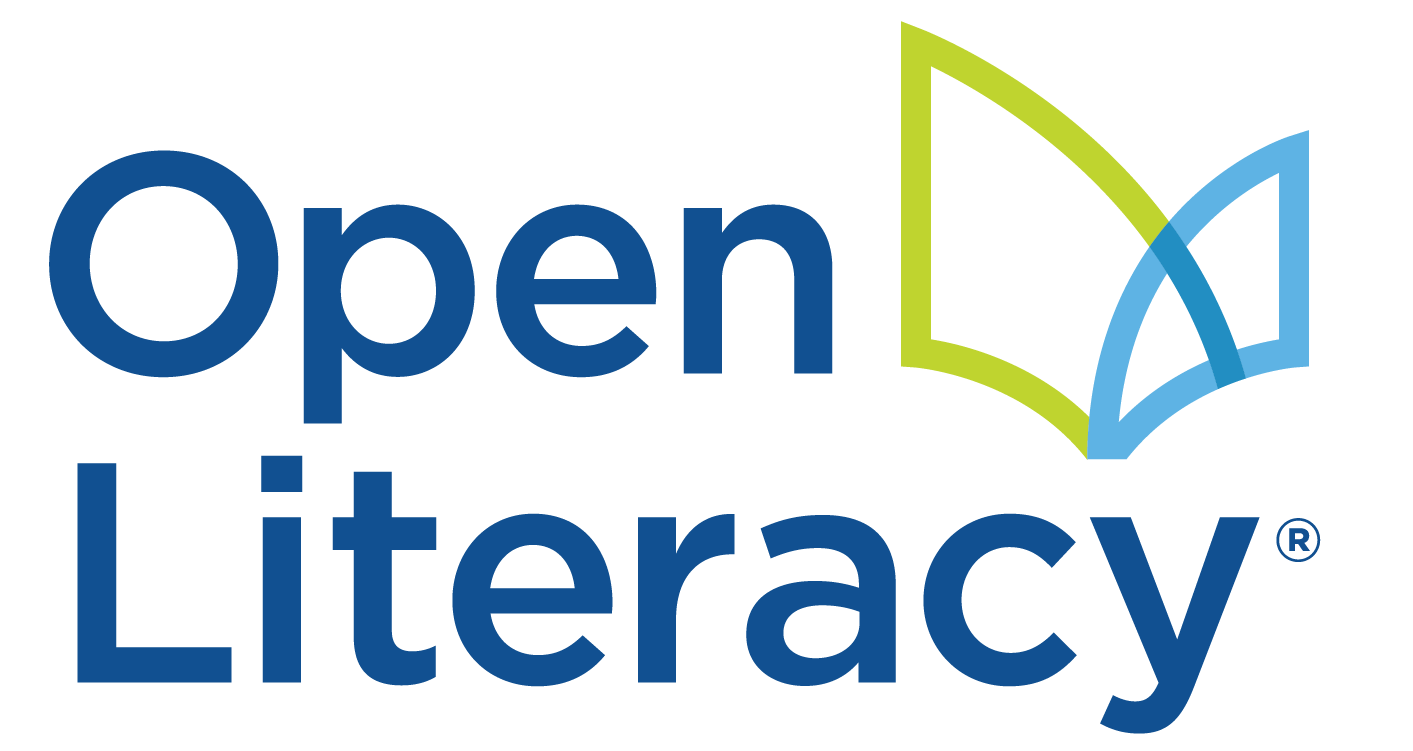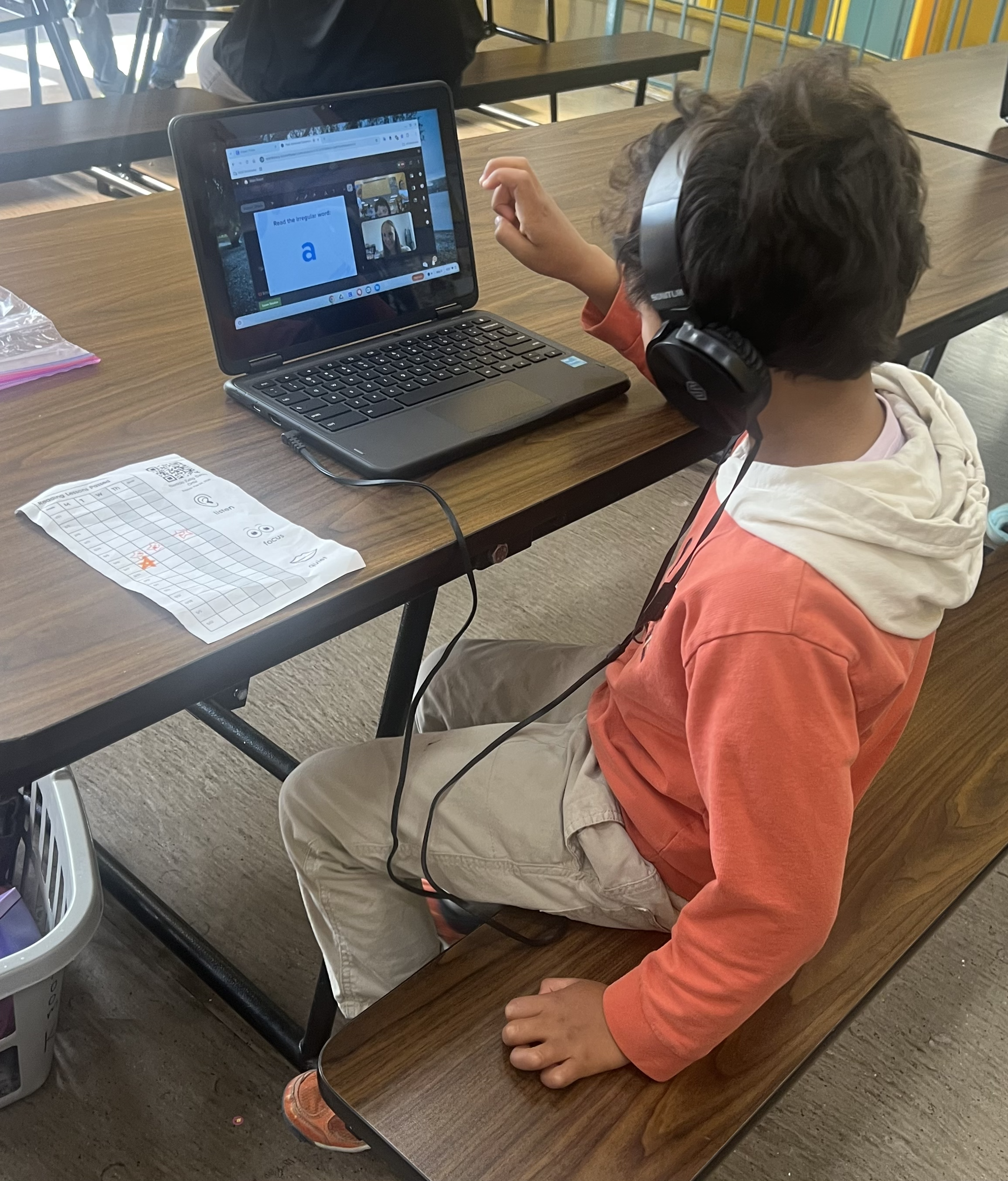Case Study: Accelerating Literacy for EL Newcomers with Roots
A young reader at OUSD meeting with his OpenLiteracy tutor
Background
When newcomer students enter U.S. schools, they face the dual challenge of learning English while meeting grade-level academic expectations. Many are placed in classrooms without adequate language scaffolds or targeted support in foundational literacy. In response to this urgent need, OpenLiteracy developed Roots, a structured, evidence-aligned curriculum designed specifically for English learners in the very early stages of reading development.
About Roots
Roots is a foundational reading and language curriculum for newcomer students in grades K–5 who also do not know their letter sounds. Grounded in the Science of Reading and designed for multilingual learners, the program integrates phonics, vocabulary, oral language, and listening comprehension in every lesson. Each session builds from a structured scope and sequence and includes:
Explicit phonics instruction anchored in oral language development;
Repeated opportunities for structured speaking and listening;
Culturally responsive texts designed to reflect students’ identities;
Embedded vocabulary and syntax routines to support academic language acquisition; and
Semantically organized units to expand vocabulary learning (e.g., lunchtime, sports).
Roots can be delivered 1:1 or in small groups by trained educators who understand the unique needs of multilingual learners. Tutors and interventionists use student-friendly materials, visual supports, and clear routines that help students build confidence and fluency quickly.
Implementation
In Spring 2024, a district serving a large newcomer population piloted Roots with 8 students in grades 2–3 who had recently arrived in the United States. Most students entered the program with limited English proficiency and decoding skills below benchmark.
Tutors met with students 3 times per week for 30-minute sessions over a 10-week period. Tutors administered the CORE Phonics Survey and an internal oral language screener at the beginning and end of the pilot.
Results
After just 10 weeks:
100% of students mastered at least one new phonics skill
75% of students advanced at least one stage in oral language development, from repeating the tutor or saying single words to speaking in phrases and short sentences
37% of students moved from “pre-decodable” to decodable text levels
On average, students increased their letter-sound knowledge by 12 letters
Tutors reported dramatic increases in student confidence and participation
Qualitative feedback from classroom teachers also highlighted that Roots students were more likely to engage in whole-class discussions, take academic risks, and attempt unfamiliar vocabulary in context.
Student Spotlight
Second grader Lamar* began tutoring with the ability to name uppercase letters and repeat words and phrases after his tutor. He initially appeared discouraged by reading lessons intended for fluent English speakers. Over the course of 10 weeks in the Roots curriculum, Lamar demonstrated significant growth in both confidence and automaticity. He increased his knowledge of letter sounds from 8 to 23 and began participating more actively in discussions about texts. His tutor reported that growing engagement and pride in his progress created a positive tone for each session. He ended the school year and pilot ready to move into decoding words with blends and OpenLiteracy’s Foundations curriculum.
“The Roots curriculum worked great for Lamar. It provided an opportunity to solidify his letter names and letter sounds while also intentionally building oral language and vocabulary. This pilot was a great way to improve my work with ELs. I think training around the importance of oral language and vocabulary development is at the heart of working with ELs.”
“I just finished my first Roots lesson with my student. He said he was feeling “super emotions” because he was enjoying it so much. I’ve never had him so engaged and motivated in a lesson before! He had mentioned a few sessions ago that he works hard to help his parents, because they don’t know any English. I feel like this is going to be such a boost in his confidence and enjoyment with reading so much. I had limited experience with EL’s before starting at OpenLiteracy. I was so nervous to start working with my student, because I was worried I would fail him. We have developed a beautiful relationship this school year and I have felt so supported by OL. I wish we could have started the Roots curriculum earlier, because it has been such a big help. Before starting the program my student could not sound out and blend any words and during our last session today, he read ten cvc words with 100% accuracy. OpenLiteracy has made me a much better educator, a more confident one, and one who now has a very big, very special place in her heart for EL’s.”
“Not sure what it was about this lesson, but Anna loved it so much. She was engaged from start to finish and was very talkative and attentive. She was able to converse about what she saw and extend the discussion by discussing colors, numbers, etc. Best lesson we’ve had together all year!”
“Omar’s confidence really soared when we started the Roots curriculum. In fact, Omar began to apply the sounds he was learning to other words during our sessions! For example, “Perfect has the /p/ like panda.”
Conclusion
Roots is more than a curriculum—it’s a pathway to inclusion and academic success. By combining explicit phonics instruction with rich language routines and culturally responsive content, Roots provides newcomer students with the tools they need to thrive in U.S. classrooms.
OpenLiteracy continues to expand Roots across districts looking to serve multilingual learners with dignity, urgency, and instructional coherence.
*all names are pseudonyms to protect students’ privacy

